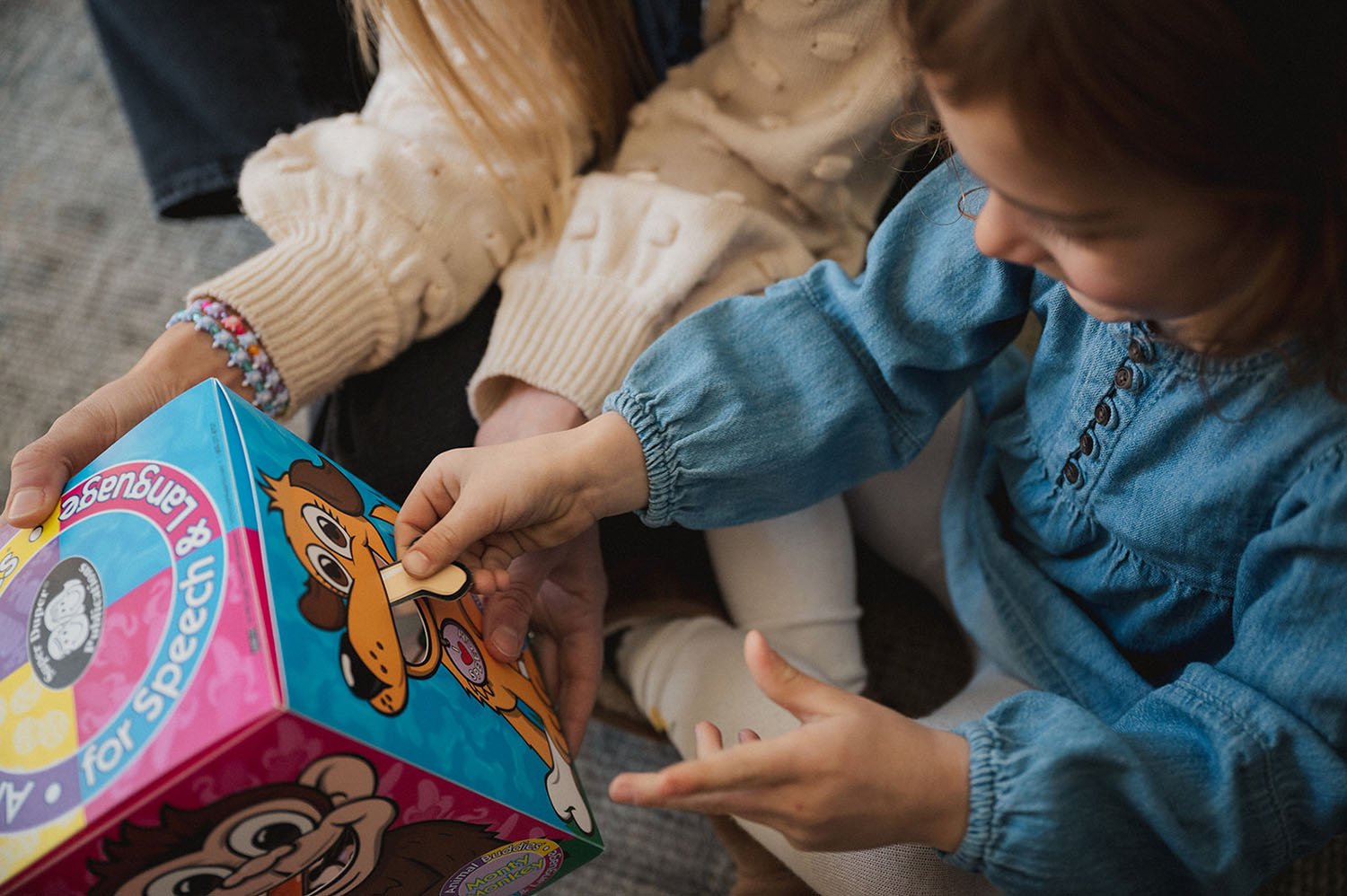
Services & Specialties
Childhood Apraxia of Speech
Childhood Apraxia of Speech (CAS) is a label for a type of speech sound disorder where children have difficulty planning and programming movements necessary for speech. Children diagnosed with CAS exhibit characteristics that include inaccurate movement resulting in vowel and consonant distortion.
Prompt/Oral Motor Therapy
A tactile-kinesthetic approach that uses touch cues to a patient's articulators (jaw, tongue, lips) to manually guide them through a targeted word, phrase or sentence. Our trained and specialized therapists work with children with motor speech disorders to help promote movement patterns and guide the speech musculature to create meaningful speech.
Articulation Therapy
Articulation and phonological disorders are labels for a type of speech sound disorder where a child has trouble saying the sounds of words correctly.
Expressive and Receptive Language Therapy
Receptive and expressive language disorders are the two major types of language disorders. Expressive language disorder is when a child struggles to communicate their thoughts, needs or wants to other people. Receptive language disorder is when a child struggles to process the messages and information they receive from others.
Voice Disorders
Therapists work with children on the quality, pitch, loudness and resonance of their voice. Children will be taught and practice strategies to improve their vocal hygiene, breathing behaviors and vocalization. Children and parents will be educated on self monitoring and carry over strategies.
The Process
Phase One
Phone Call: This is where the journey begins, the therapist will get a bit of information from you about your child and your concerns. This is your time to fill us in on anything and everything that may be relevant to your child's history. We will then set up an evaluation and answer any questions you may have.
Phase Two
Evaluation: Our evaluations can take anywhere from 1-3 sessions. This is the time your therapist spends getting their first glimpse of your child. Keen observations are made, standardized testing is completed, and the bonding and building trust process begins between your child and the therapist. Recommendations regarding frequency are typically made here.
Phase Three
Treatment: Using goals from the evaluation we then move on to treating your child using an evidence-based and FUN approach. Your child will work hard but will feel loved and supported the entire time.
Phase Four
Discharge: Once your child has met all of their speech goals they are discharged from speech therapy!







The number one question I get from parents is should their child be talking by now. I usually get this question between ages 1-2. The simple answer to this is usually found on most parenting apps. Typically it is suggested that the first words appear around your child's first birthday. However, that may not be the case for all kids. Here are some helpful benchmarks to look out for.